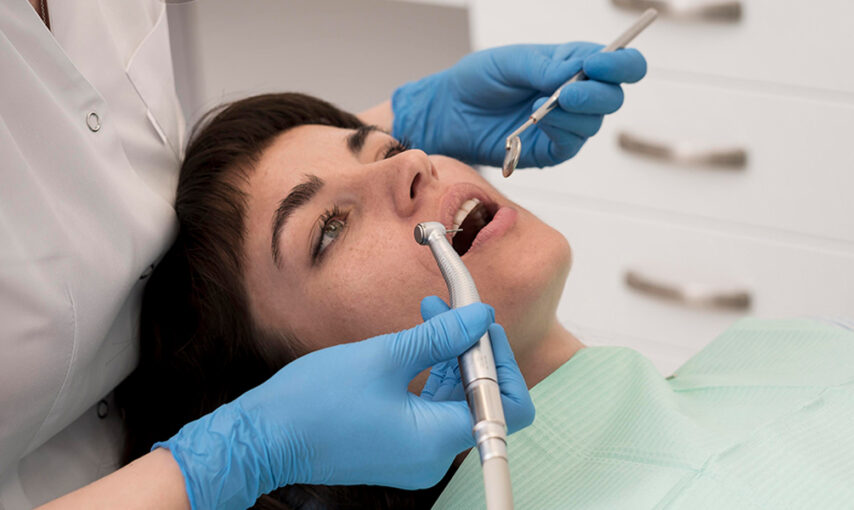Dental fillings are essential in protecting and restoring teeth from cavities. They fortify the tooth and prevent further decay. However, fillings need proper care to stay effective over time. Without attention, fillings may wear out, crack, or fail, leading to more significant dental issues. With the right care, you can extend the life of your fillings and maintain a healthy smile.
Understanding Dental Fillings
Fillings are used to restore a tooth’s function and shape after it has been damaged by decay. While having a dental fillings procedure near you , your dentist removes the decayed part and replaces it with a filling material, sealing the tooth from further damage.
Common Types of Fillings
- Amalgam: A durable mix of metals, perfect for back teeth that endure heavy chewing.
- Composite Resin: Tooth-colored and ideal for visible areas due to its natural appearance.
- Gold: Known for its durability and longevity, though it’s more expensive than other options.
- Ceramic: Aesthetic and resistant to staining, making it a popular choice for front teeth.
Each material has its benefits, and your dentist will recommend the one that is best suitable for your needs, considering factors like durability, location, and appearance.
Daily Care Tips for Dental Fillings
Upkeeping good oral hygiene is essential for keeping your fillings intact. These tips can help:
- Brush Thoroughly: Use a soft-bristled toothbrush paired with fluoride toothpaste for twice-daily brushing, paying attention to every surface of your teeth, including the filled ones.
- Floss Regularly: Cleaning between your teeth is essential to prevent plaque from building up around your fillings. Slide the floss gently to avoid damaging the material.
- Rinse After Eating: Use water or an alcohol-free mouthwash to clear away food particles and protect the tooth structure.
Proper Brushing Technique
Use small, circular motions to clean the filled tooth without applying too much pressure. This ensures the surrounding enamel and filling material stay intact.
Tools Matter
The right tools can make a big difference. Choose a toothbrush designed for gentle cleaning and a toothpaste that protects against decay without being overly abrasive.
Foods and Habits to Avoid
Certain foods and habits can weaken your fillings over time. Being mindful of what you eat and how you use your teeth can make a big difference in preventing damage.
Foods to Avoid
- Sticky Treats: Chewy candies like caramel can tug at your fillings, potentially loosening them.
- Hard Foods: Crunching on ice, nuts, or hard candies can cause fillings to crack or chip.
- Acidic Foods: Citrus fruits, vinegar-based dressings, and sodas may erode the surrounding enamel, making your fillings vulnerable.
Harmful Habits
- Grinding your teeth (bruxism) exerts pressure on your fillings, leading to wear and tear.
- Nail-biting and using teeth to open packets can chip fillings and harm your enamel.
To protect your fillings, choose softer, less abrasive foods,, and consider a custom nightguard if you grind your teeth.
Regular Dental Visits
Routine checkups at a dental clinic for tooth fillings are vital to maintaining the health of your teeth and fillings.
Why Regular Visits Are Crucial?
- Dentists can spot early signs of filling wear or damage.
- Professional cleanings are essential for eliminating plaque and tartar, which may compromise the strength of your fillings.
- X-rays may be used to detect hidden issues around or beneath the filling.
How Often Should You Visit?
Most dentists recommend checkups every six months. These visits are an opportunity to ensure your fillings remain secure and effective while addressing any other oral health concerns.
Recognizing Signs of Damage
Even with excellent care, fillings can wear down over time. It’s important to be aware of signs that something might be wrong.
Common Warning Signs
- Increased Sensitivity: Pain when consuming hot, cold, or sweet foods might indicate a problem.
- Visible Cracks or Chips: Check your fillings occasionally in the mirror for any visible damage.
- Pain or Discomfort: Persistent aching when biting could suggest that the filling is loose or no longer fit properly.
What to Do If You Notice Issues?
If you suspect a problem with your filling, contact a dentist in Evergreen Park right away. Prompt treatment can stop further damage and reduce the need for extensive dental work.
Long-Term Maintenance Strategies
Beyond daily care, adopting preventive measures ensures your fillings stay in great condition for years.
Protect Your Teeth During Sports
If you take part in contact sports, wearing a mouthguard is essential. It shields your fillings and teeth from impact and helps avoid accidental damage.
Stick to a Balanced Diet
Incorporate calcium-rich foods like dairy, leafy greens, and almonds to strengthen your teeth. Lessening sugar intake can also lower the risk of decay around your fillings.
Preventive Treatments
Ask your dentist about sealants, which act as a protective shield or barrier for your teeth, reducing the chance of further decay. These are especially helpful for molars with deep grooves.
Replace Fillings When Necessary
No filling lasts forever. Over time, materials can weaken or deteriorate. Regular dental exams will help determine when a replacement is needed.
Final Thoughts
Caring for your dental fillings doesn’t have to be overwhelming. By sticking to healthy oral habits, watching your diet, and visiting Family Dental Care – Evergreen Park regularly, you can keep your fillings in excellent condition and avoid future dental problems. Don’t wait—schedule your next appointment today and take a proactive step toward long-lasting oral health!


